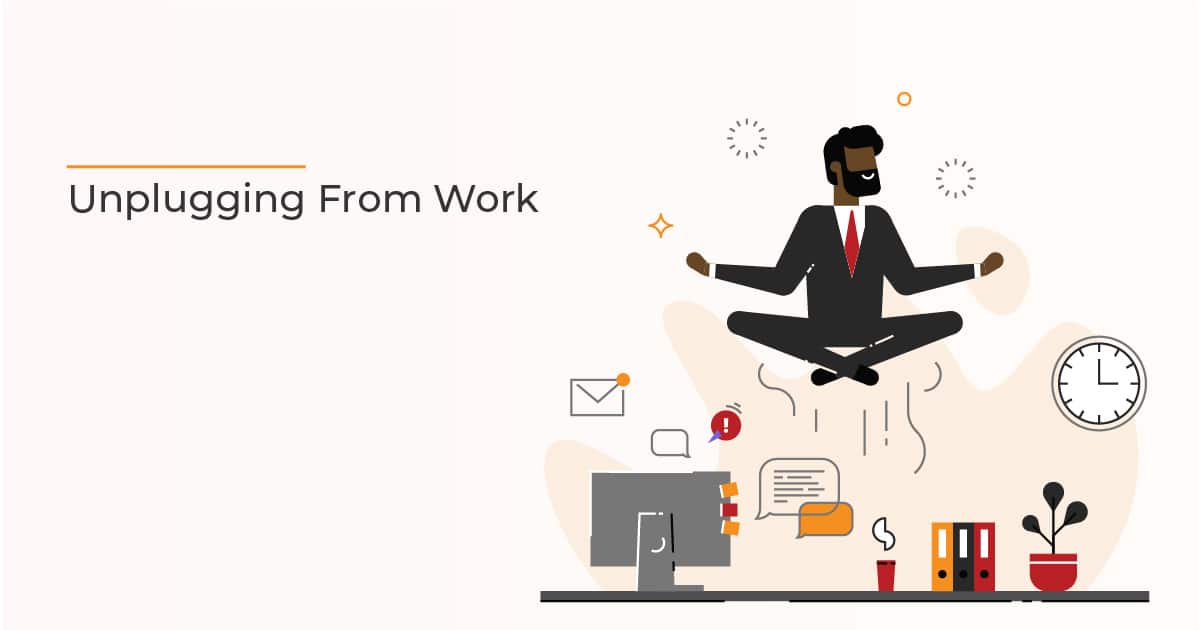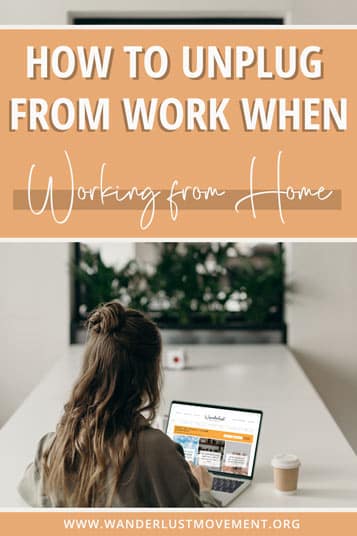How to Unplug After Work: A Guide to Achieving Work-Life Balance
Set Boundaries
Setting boundaries is crucial in achieving a healthy work-life balance. One way to do this is by establishing a designated time to stop working each day. This can help create a clear separation between work and personal time. Additionally, consider setting boundaries around checking work email or taking work calls outside of office hours. By setting these boundaries, you can create a sense of control over your time and prevent work from bleeding into your personal life.
Another important aspect of setting boundaries is learning to say no. It can be tempting to take on extra projects or work longer hours, but it’s important to recognize when enough is enough. By learning to say no to additional work or commitments, you can protect your personal time and avoid burning out. Remember, your time and energy are valuable, so it’s okay to prioritize your well-being.
Lastly, communicate your boundaries to your colleagues and supervisors. Let them know when you will be unavailable for work-related tasks and make sure they respect your personal time. By being clear and consistent with your boundaries, you can create a work environment that supports your work-life balance.
Create a Relaxing Evening Routine
After a long day of work, it’s important to unwind and relax. Creating a soothing evening routine can help you transition from work mode to relaxation mode. Start by turning off electronic devices at least an hour before bed to give your mind a chance to unwind. Use this time to engage in calming activities such as reading a book, taking a bath, or practicing mindfulness meditation.

Incorporate activities that help you relax and destress into your evening routine. This can include light exercise, such as a short walk or yoga session, to release tension in your body. Additionally, consider engaging in a creative hobby, such as painting or knitting, to distract your mind from work-related stressors. By incorporating these activities into your evening routine, you can create a sense of calm and relaxation that will carry over into the next day.
Lastly, prioritize self-care during your evening routine. Take time to pamper yourself with a skincare routine, indulge in a favorite treat, or simply spend time doing something that brings you joy. By prioritizing self-care, you can recharge your batteries and set yourself up for a restful night’s sleep.
Disconnect from Technology

In today’s digital age, it can be challenging to unplug from technology, especially after work hours. However, disconnecting from technology is essential in achieving a healthy work-life balance. Consider implementing a digital detox plan that includes designated times to unplug from electronic devices. This can help reduce screen time and prevent the constant barrage of work-related notifications.
Create a tech-free zone in your home where you can unwind and relax without the distractions of technology. This can be as simple as designating a specific area, such as a cozy reading nook or outdoor patio, where you can disconnect from devices and focus on being present in the moment. By creating a tech-free zone, you can cultivate a sense of peace and mindfulness in your personal space.
Additionally, consider setting boundaries around technology use during your personal time. This can include turning off notifications for work-related apps, setting specific times to check email, or taking breaks from social media. By setting these boundaries, you can reclaim your time and attention, allowing yourself to fully disconnect from work and focus on your well-being.
Engage in Physical Activity
Physical activity is a powerful tool in helping you unplug after work and recharge your mind and body. Engaging in exercise can help release endorphins, reduce stress, and improve your overall mood. Consider incorporating physical activity into your daily routine, whether it’s a brisk walk, a yoga class, or a high-intensity workout. Find an activity that you enjoy and make it a priority to move your body regularly.
Outdoor activities can be especially beneficial in helping you unplug and reconnect with nature. Consider going for a hike, a bike ride, or a run in a nearby park to enjoy the fresh air and scenic views. Spending time outdoors can help clear your mind, reduce stress, and provide a sense of rejuvenation. Make a conscious effort to spend time in nature regularly to reap the benefits of outdoor physical activity.
Incorporate movement breaks throughout your workday to break up long periods of sitting and stimulate circulation. This can include stretching at your desk, taking a short walk outside, or doing a quick workout routine. By incorporating physical activity into your daily routine, you can improve your overall well-being and create a healthy work-life balance.
Cultivate Mindfulness
Mindfulness is the practice of being fully present in the moment and paying attention to your thoughts, feelings, and surroundings without judgment. Cultivating mindfulness can help you unplug from work-related stressors and create a sense of calm and clarity. Consider incorporating mindfulness practices into your daily routine, such as meditation, deep breathing exercises, or mindful walking.
Create a designated mindfulness space in your home where you can engage in meditation or mindfulness practices. This can be a quiet corner with a comfortable cushion, a soothing candle, or calming music. Take a few minutes each day to sit quietly and focus on your breath, allowing yourself to let go of work-related worries and distractions. By creating a mindfulness space, you can cultivate a sense of peace and presence in your daily life.
Practice mindfulness throughout your day by being fully present in your activities and interactions. Whether you’re eating a meal, talking to a loved one, or completing a task, focus on being present and engaged in the moment. This can help you reduce stress, improve your focus, and enhance your overall well-being. By cultivating mindfulness, you can unplug from work and create a sense of balance in your life.
Connect with Loved Ones
Spending quality time with loved ones is essential in helping you unplug after work and nurture your relationships. Make time to connect with family and friends, whether it’s through phone calls, video chats, or in-person visits. Share your thoughts and feelings with your loved ones, listen to their stories, and engage in meaningful conversations. By connecting with loved ones, you can strengthen your support system and create a sense of belonging and connection.
Plan regular social activities with friends and family to create opportunities for laughter, fun, and relaxation. This can include game nights, movie marathons, or outdoor adventures. Engaging in social activities can help you unwind and recharge your energy, while also fostering meaningful relationships. Make time to prioritize social connections in your life to maintain a healthy work-life balance.
Consider volunteering or participating in community activities as a way to connect with others and give back. Engaging in volunteer work can provide a sense of fulfillment, purpose, and connection to your community. Look for opportunities to get involved in local organizations, charities, or causes that align with your interests and values. By connecting with others through volunteer work, you can make a positive impact on the world while also nurturing your own well-being.
Practice Gratitude
Practicing gratitude is a powerful tool in helping you unplug after work and shift your focus to the positive aspects of your life. Take time each day to reflect on the things you are grateful for, whether it’s your health, relationships, accomplishments, or simple pleasures. Keep a gratitude journal where you can write down three things you are grateful for each day. By focusing on the good in your life, you can cultivate a sense of appreciation and contentment.
Express gratitude to others by sending thank-you notes, giving compliments, or performing random acts of kindness. Show appreciation for the people in your life who support and uplift you, whether it’s a coworker, friend, or family member. By expressing gratitude to others, you can strengthen your relationships and create a positive impact on those around you.
Practice self-compassion by being kind and forgiving toward yourself. Recognize your strengths, accomplishments, and efforts, and acknowledge your worth and value. Treat yourself with the same kindness and compassion that you would show to a loved one. By practicing self-compassion, you can cultivate a sense of self-worth and acceptance, which can help you unplug from work-related stressors and create a sense of balance in your life.
Indulge in Creative Outlets
Engaging in creative outlets can be a therapeutic way to unplug after work and express yourself. Whether it’s writing, painting, cooking, or gardening, find a creative activity that brings you joy and allows you to unwind. Set aside time each day to engage in your creative outlet, whether it’s for 15 minutes or an hour. Allow yourself to get lost in the creative process and focus on the present moment.
Experiment with new creative hobbies or activities to spark inspiration and creativity. Try your hand at a new art form, learn a musical instrument, or take a cooking class. Embrace your inner artist and explore different ways to express yourself creatively. By indulging in creative outlets, you can tap into your imagination, reduce stress, and foster a sense of fulfillment.
Share your creative work with others by participating in art shows, publishing your writing, or hosting a cooking class. Engage in collaborative projects with friends or colleagues to inspire creativity and build connections. By sharing your creative talents with others, you can create a sense of community and appreciation for your work. Embrace your creativity as a way to unplug from work and nurture your artistic spirit.
Get Quality Sleep
Quality sleep is essential in helping you unplug after work and recharge your mind and body. Establish a relaxing bedtime routine that promotes restful sleep, such as reading a book, practicing relaxation techniques, or taking a warm bath. Create a calming sleep environment by keeping your bedroom cool, dark, and quiet. Invest in a comfortable mattress and pillows that support a restful night’s sleep.
Set a consistent sleep schedule

